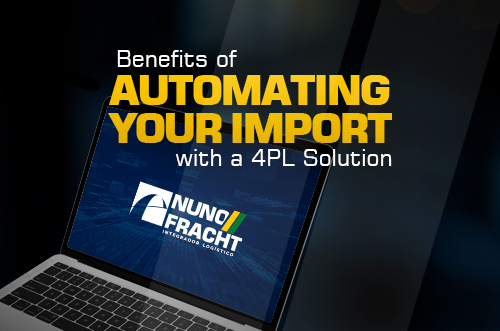
The logistics sector is one that cannot afford to come to a halt: consumers are impatient, and competition shows no mercy. Therefore, companies aiming to stand out in global commerce must do more than just send and receive products—they need to do so quickly, efficiently, and, above all, intelligently. In this article, we will delve into the universe of 4PL solutions, unveiling how it can be a driving force for businesses
In this article, we’ll delve into the world of 4PL, unveiling how it can be a driving force for business.
From its origin to the future: The logistics climb
Before we delve into 4PL, let’s understand the three levels of logistics that precede it and the only one that follows.
1PL: The first step
-
- This refers to the scenario in which companies are entirely autonomous in their logistics operations.
- Everything is done internally, from acquiring raw materials to delivering of the final product.
- Although this model gives the company total control, it tends to be inefficient. Lack of specialization and the need to manage multiple logistics areas can lead to delays, high costs and a lack of flexibility.
2PL: The e-commerce revolution
-
- With the rise of online shopping, fast delivery has become a priority. This gave rise to 2PL, which focuses on outsourcing deliveries.
- The company still retains control over most of the operation, but the final delivery is handled by specialized third parties.
- Although delivery is more efficient, challenges still remain. Lack of integrated management can lead to communication problems and traceability issues.
3PL: Expanding horizons
-
- The growing complexity of global operations calls for a more comprehensive solution.
- In the 3PL model, not only delivery but storage and distribution are outsourced. An outsourced operator takes care of all the physical logistics.
- Despite being much more efficient than previous models, there is still a separation between the management of logistics operations and the company’s overall strategy.
4PL: The golden era
-
- With the growth of supply networks and globalization, 4PL has emerged as a response to the need for total integration.
- A 4PL provider acts as a manager, centralizing all operations from procurement to delivery, often using technology to enhance efficiency.
- What really sets 4PL apart is the strategy. Providers plan, execute and optimize logistics in line with the company’s goals.
5PL: Envisioning the future
-
- The digital revolution and the growth of global e-commerce led to the creation of 5PL.
- Employing advanced technologies such as the Internet of Things (IoT) and Artificial Intelligence, 5PL optimizes logistics operations to meet the demands of an ever-changing online market.
- The true strength of 5PL lies in its ability to predict trends, adapt quickly and implement innovative technological solutions.
4PL is not just about logistics
Why is 4PL so revolutionary? In addition to offering a panoramic view of operations, having the ability to track suppliers and serving as a unified point of contact, 4PL excels in other nuances:
- Diplomacy: it steps in like a true diplomat, negotiating between the different partners in the logistics chain. Performance metrics, conflict resolution and the art of negotiation are all part of the package.
- Adaptability: if there’s one thing the contemporary market teaches us, it’s that everything can change in the blink of an eye. An increase in sales? A global crisis? 4PL demonstrates impressive adaptability, calibrating its operations to meet demands, whether it’s scaling up or slowing down.
- Technology: some people think that high technology is a 5PL privilege. However, savvy 4PL providers keep up, employing analytics, integrated management systems and even artificial intelligence to perfect every stage of the process.
- Consulting: Not content with just managing, 4PL takes on the role of a strategic advisor, pointing out improvement opportunities, suggestions for reducing costs and, most importantly, paving the way for innovative logistics strategies.
- Perfection: 4PL doesn’t mess around. In many contracts, these providers shoulder the entire responsibility for the logistics chain. They are so committed to excellence that they often stake their own money, tying their profits to logistics performance.
Final points
In this new era of logistics, those who fail to adapt will be left behind. In a global scenario in which sustainability, social responsibility and efficiency are intertwined, 4PL’s ability to offer conscious and adaptable solutions is remarkable. The message is clear: centralization, optimization and innovation are the pillars for success in today’s market.

